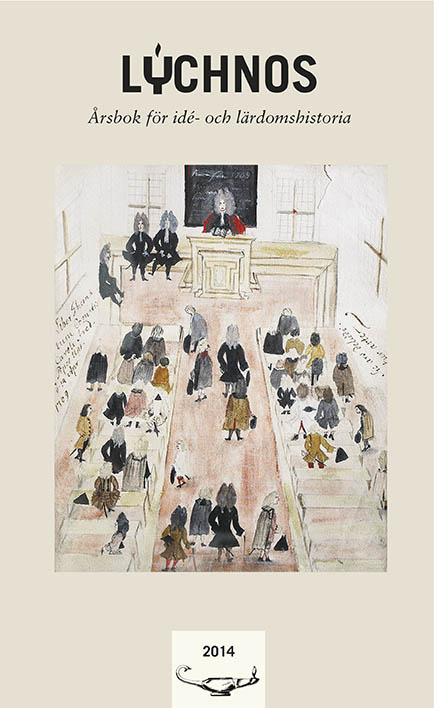Universitetens reformbehov
Uppfostringskommissionens beskrivning av problemen i svensk högre utbildning 1745–1751
Abstract
During the so-called age of liberty in Sweden (1721–1772), demands were promptly made for concrete applications of the rather elusive idea of ‘utility’. One grand expression of these claims was the educational commission appointed in 1745 to investigate whether and in what ways the Swedish educational system, including the universities, should be reformed. Previous studies have primarily focused on analyzing the commission’s reform proposal; its content, potential consequences and the response it received from Uppsala University in particular. The relationship between the commission and the universities has, moreover, almost exclusively been considered as a struggle for influence over Sweden’s higher education. This article focuses instead on the ideas of the commission regarding the need for university reform. The article aims to suggest alternative approaches for subsequent studies, however I also wish to indicate the contours of a more nuanced understanding of the intentions of the commission. The article takes as an analytical starting point the assessment made by the commission that Swedish universities failed in reaching their legitimate goal: to educate students for positions in government offices. As this failure was considered harmful to the country, it was believed to be in the state’s interest to regulate the influx of students into higher education as well as the knowledge and qualifications these students should have acquired upon graduation. Previous studies have considered the commission almost exclusively as a manifestation of the principle that universities should contribute to the economic utility or welfare of the country. This article brings to the fore that while the economy was indeed important, additional attention should be given to the broader political interests of the commission.
Downloads
Publicerad
Nummer
Sektion
Licens
This work is licensed under a Creative Commons Attribution 4.0 International License. The copyright for the work published in Lychnos remains with the authors.


